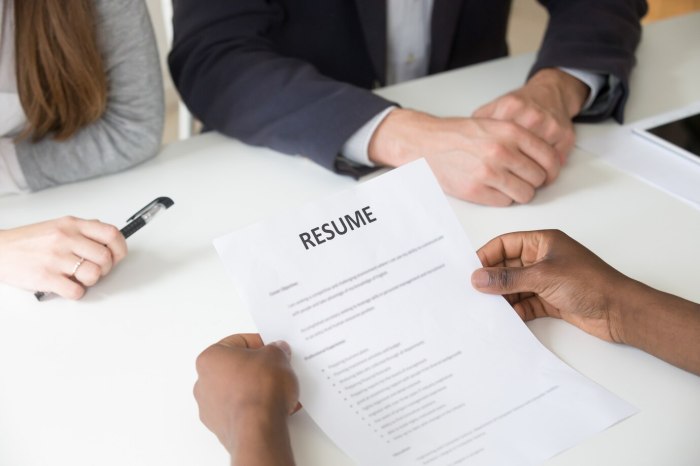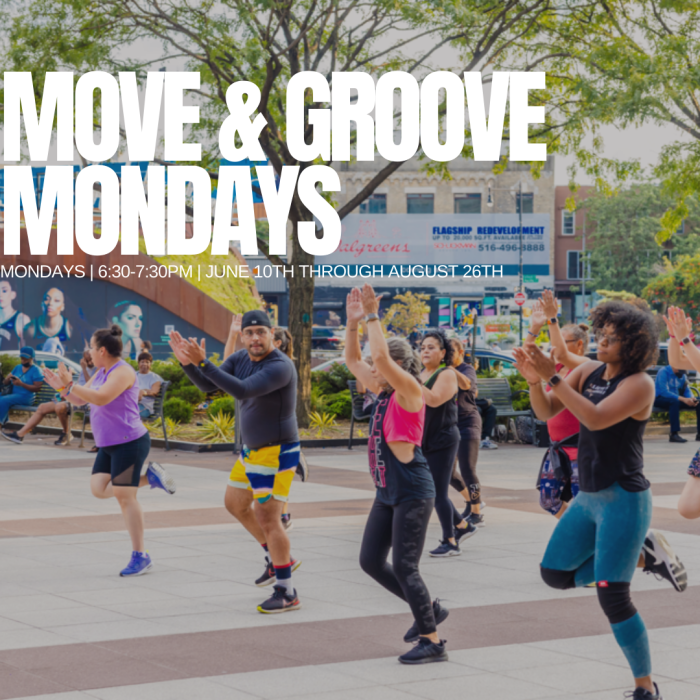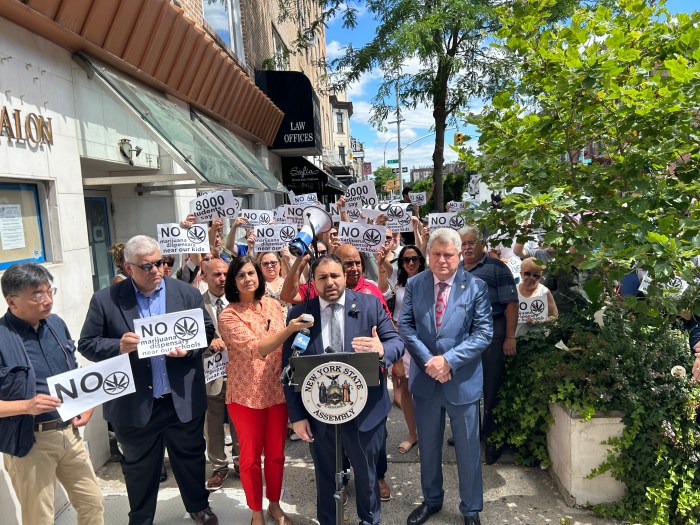Neither rain, nor sleet, nor threat of deportation will stay this pizza delivery man from his appointed rounds.
The undocumented immigrant who was detained and nearly deported when he was delivering pizzas to Fort Hamilton Army Base on June 1 said he would gladly return to the base again to make a future delivery if duty called.
“If I have to deliver to the base, I will do it,” Pablo Villavicencio said. “I love my job. I will do it again.”
Villavicencio returned to Bay Ridge for the first time since Immigration and Customs Enforcement officials detained him in June — leading to his 53-day detention until a judge ordered his release on July 24 — for a lunch at the Bridgeview Diner with Councilman Justin Brannan (D–Bay Ridge) on Aug. 10, along with Villavicencio’s wife, Sandra Chica, his two daughters, his lawyer, and a pair of local reporters, where he discussed his experience since he was detained.
Villavicencio said he still does not understand why he was detained at the base that day, saying he made three deliveries to Fort Hamilton Army Base once a month in the three months leading up to his June arrest without any issues, adding that the Queens pizzeria where he worked, Nonna Delia’s, had a delivery contract with the Army.
“I don’t know what happened that day,” he said.
Chica said that the guards even knew him by name.
“They knew him — they called him Mr. Villavicencio,” she said.
After he was arrested by federal immigration officials, Villavicencio was taken to a detention facility in New Jersey, where he claims he was immediately put in solitary confinement — in a room known as “the box” — for the first 72 hours.
When he was finally released into the jail’s general population, Villavicencio said an administrator asked him to sign his own deportation order — something he said the administrator and federal immigration officials repeatedly pressed him to do three or four times per week for the nearly two months he was detained. But Villavicencio refused to sign on the dotted line, crediting advice from his lawyer not to sign anything.
Villavicencio’s lawyer from the Legal Aid Society, Jennifer Williams, said that it’s common practice for federal immigration enforcement officials to pressure detained undocumented immigrants to sign forms consenting to immediate deportation — even if they know that the detainees have pending cases and lawyers advising them otherwise — as a means to short-circuit the legal process and speed up deportations.
“There’s a lot of pressure by ICE to have inmates sign deportation orders as quickly as possible, prior to having any consultation with counsel. It’s just all part of the deportation machine,” she said. “They generally do not respect the fact that somebody is represented by counsel.”
Immigration and Customs Enforcement did not respond to inquiries by press time about why Villavicencio was allegedly put in solitary confinement or about pressuring inmates to sign off on their deportations.
Villavicencio’s resolve was buoyed by watching television coverage of his case with the other inmates, he said, especially seeing so many demonstrators supporting him at rallies, chanting “Free Pablo,” and sometimes even getting arrested for civil disobedience protesting his treatment.
“I was watching the Spanish and the English TV, and it’s a lot of people in the street who got arrested for me,” he said. “All the people in the jail were saying, ‘wow, it’s you who delivered the pizza?!’ ”
Weekly visits from his wife and daughters also sustained Villavicencio, he said. But Chica said the visits were emotional for the kids, who did not understand why their father couldn’t come home.
“Going to jail with them was hard. They were crying, asking me why they had to leave him there,” she said.
Chica said she told the girls that Villavicencio was working, but she added that her older daughter, 4-year-old Luciana, was skeptical, questioning why the jail didn’t look like the pizzeria where she knew her father actually worked.
“She knows that he used to work in that restaurant, and she used to ask me why she didn’t see tables, why she was seeing officers, why he was wearing a uniform, she was asking a lot of questions,” Chica said. “I think she didn’t believe [that he was ‘working’].”
Relief came on July 24, when U.S. District Judge Paul Crotty stayed Villavicencio’s deportation and ordered that he be immediately released from detention. Villavicencio said he was taking a shower that evening when the other inmates and the security guard informed him that he was free to go.
“The other guy said, ‘hey, Pablo, finish the shower right now because you’re leaving,’ ” he said. “The security guy in the jail said, ‘pack everything, right now — you’re free.’ ”
Chica said that she was most relieved that her daughters would be reunited with their father, because she could tell that his absence was taking a toll on them.
“They were suffering a lot,” she said. “They were really upset about it.”
Since Villavicencio returned to the family’s home in Hempstead, Long Island, three weeks ago, he has tried to make up for lost time with his daughters, taking them swimming, playing basketball, and taking them to dance classes, he said. But Chica added that her husband typically stays home now, because he worries about being detained again, and he misses working, which she said he cannot do while his legal proceedings are underway.
“Sometimes he’s scared to go out. Sometimes he prefers to spend time at home, because when he sees the police, he gets scared,” she said. “He’s concerned that right now he cannot work because of this process, so he is trying to enjoy the girls, but it’s difficult when you have been working all the time.”
Williams said that Chica has been a steadying force for the family since the day that Villavicencio was detained.
“Sandra is probably one of the most resilient, strongest women I’ve ever met,” Williams said. “She’s braved this storm like nobody’s business.”
But Chica — a U.S. citizen — said she was acting in the interest of both her family and her country, adding that her husband was only doing his job to provide for his family when he was detained.
“I was acting as a mom, then as a wife, then as a citizen,” she said. “He was just working, doing his job.”
Brannan was the first elected official to call attention to Villavicencio’s detention after Spanish newspaper El Diario first reported it on June 4. The pol said that he and his staffers were shocked by the incident, and pointed out that many other similar scenarios likely go unreported.
“We couldn’t believe our eyes when we read the article and it was already a couple of days old,” Brannan said. “It just goes to show you, if we didn’t see that article — hopefully someone else would’ve picked up on it — but how many times does this kind of stuff happen and we don’t even know?”
Villavicencio agreed, saying that it’s important that protesters and activists continue fighting the Trump administration’s crackdown on otherwise law-abiding undocumented immigrants, according to Chica, who translated some of his thoughts.
“He wants to remember that we have to still fight for other people in the same situation,” she said. “This administration is doing terrible thing to families, so we cannot stop fighting for them.”























